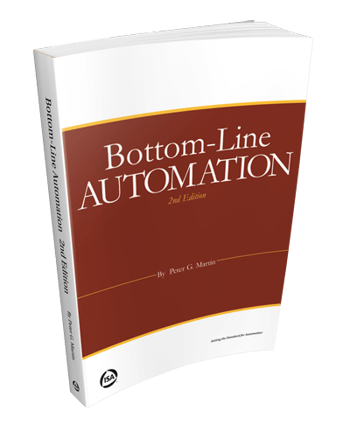AutoQuiz is edited by Joel Don, ISA's social media community manager.
This automation industry quiz question comes from the ISA Certified Automation Professional (CAP) certification program. ISA CAP certification provides a non-biased, third-party, objective assessment and confirmation of an automation professional's skills. The CAP exam is focused on direction, definition, design, development/application, deployment, documentation, and support of systems, software, and equipment used in control systems, manufacturing information systems, systems integration, and operational consulting. Click this link for more information about the CAP program.
In the lifecycle economic model, the economic profile is defined as lifecycle benefits less lifecycle costs. Which statement below is true about the lifecycle economic model?
a) lifecycle benefits can be realized from project years 1 through 5 only in order to comply with tax regulatory guidelines, regardless of the useful life of the project.
b) all lifecycle costs should be considered over the entire expected life of the project, with all costs calculated on a net present value basis.
c) lifecycle costs for the project should include all costs to the operation, whether or not they were incurred as a result of the installation of the project.
d) non-operational costs, such as engineering and construction costs, should not be considered as part of the lifecycle costs calculation, since they are one-time charges.
e) none of the above
Answer A is not correct because tax regulatory guidelines do not restrict the time period for being able to realize benefits or savings over the years of expected life for the project. Tax guidelines, if they have any affect, will affect lifecycle costs, namely depreciation cost.
Answer C is not correct since the lifecycle costs for a project should include only those costs that are directly related to the installation and operation of the project scope. Otherwise, the return to the organization due to installing the project would be understated.
Answer D is not correct since non-operational costs, such as engineering and construction costs, must be considered as part of the lifecycle costs. these costs usually are a significant portion of the overall lifecycle costs on a net present value basis.
The correct answer is B. All lifecycle costs should be considered over the entire expected life of the project, with all costs calculated on a net present value basis. The entire expected life of the project must be considered in the lifecycle economic model, and as a result, all benefits and costs must be adjusted for inflation, interest, risk, etc., by calculating all on a net present value basis.
Reference: Martin, Peter G., Bottom-Line Automation, Second Edition. 
About the Editor
Joel Don is the community manager for ISA and is an independent content marketing, social media and public relations consultant. Prior to his work in marketing and PR, Joel served as an editor for regional newspapers and national magazines throughout the U.S. He earned a master's degree from the Medill School at Northwestern University with a focus on science, engineering and biomedical marketing communications, and a bachelor of science degree from UC San Diego.




